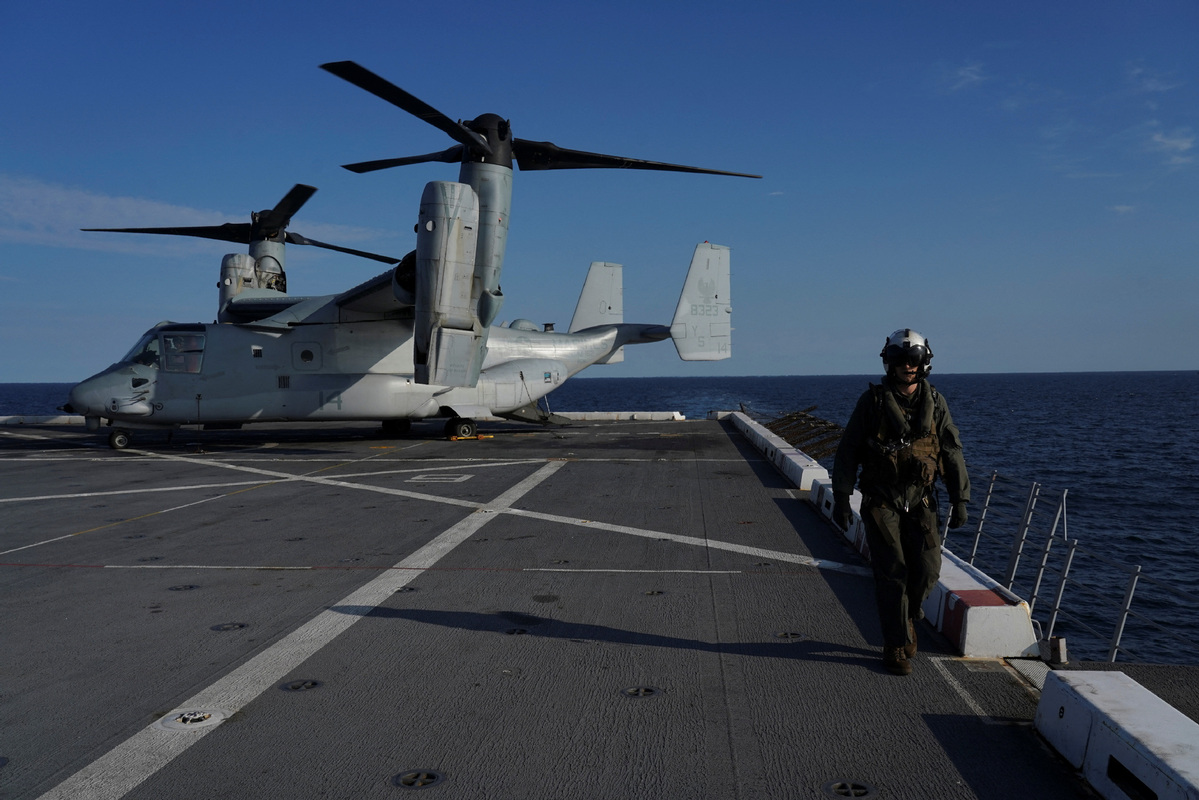Expansion of NATO called out as great risk
By JAN YUMUL and YANG HAN in Hong Kong | China Daily | Updated: 2023-09-28 06:52

US to blame for role in destabilization and insecurity in Asia, UN envoys say
The United States-led NATO expansion and confrontational attitude have been called out for posing great risks to the Asian region, as the 78th United Nations General Assembly came to a close in New York on Tuesday.
Representatives from the Democratic People's Republic of Korea and the Syrian Arab Republic blamed the US for its selfish geopolitical interests, which have led to destabilization and insecurity, as well as exploitation of Syria's natural resources.
During his speech, Kim Song, ambassador and permanent representative of the DPRK to the UN, accused Washington of trying to create "the Asian version of NATO". The North Atlantic Treaty Organization was formed in 1949 in response to the emerging Cold War. The military bloc includes European nations, the US and Canada.
Kim said the US made 2023 "an extremely dangerous year" by trying to provoke a nuclear war. He denounced leaders of both the US and the Republic of Korea for their "hysterical remarks" of confrontation, like the "end of the regime" and "occupation of Pyongyang", in flagrant violation of the principles and purposes of the UN Charter.
"The DPRK remains steadfast and unchanged in its determination to firmly defend the national sovereignty, security interests and well-being of the people against the hostile threats from outside," Kim said.
Lakhvinder Singh, director of the peace program at the Asia Institute in Seoul, said that he "strongly agrees" with Kim's view that the UN Security Council needs to be reformed and Asian countries should be given due representation in the decision-making process.
"So far, Western countries have mainly used it to promote their own narrow national interests," Singh said.
Syrian Vice-Minister for Foreign Affairs Bassam Sabbagh said the "policies of creative chaos" adopted by successive US administrations "in our region" serve their geopolitical and selfish interests, and this "led to destabilization and insecurity".
Sabbagh blamed "systematic American plunder" of the Syrian people's national wealth, such as oil and gas, that has deprived his country of its resources.
Emergence of terrorism
He said the US has spent billions of dollars demolishing and destroying development achievements made over past decades, contributing to the emergence of a phenomenon of extremism and terrorism.
Furkan Halit Yolcu, a researcher at Sakarya University's Middle East Institute in Turkiye, said that the US aimed to establish a power vacuum in northern Syria for oil exploitation in Deir ez-Zor and succeeded. It formulated a state-like entity "that will ensure the longevity of this vacuum and it succeeded". But he said the US "failed to reach a peaceful state in the Syrian war", which is the main reason for US presence.
"Once again in US history, the US intervened in another country's affairs in the name of democracy and peace, but these did not happen," Yolcu said.
Jawaid Iqbal, chairman of the Department of West Asian and North African Studies at Aligarh Muslim University in India, said that recent speeches at the UNGA by Syria and the DPRK "unveil the dark underbelly of the US-centric international 'rules-based' order".
US unipolarity has been marked by the US empire's violent military interventions in Iraq, Afghanistan, Libya, and Yugoslavia, he said.
"Beyond military actions, the US wages an economic warfare through unilateral sanctions imposed on countries like China, the DPRK, Iran, Syria, Cuba, Venezuela, Nicaragua, Eritrea, Zimbabwe, and others," Iqbal said.
Arhama Siddiqa, a research fellow at the Institute of Strategic Studies Islamabad in Pakistan, said the recurring pattern observed across the Middle East "underscores a troubling trend". External interventions often result in widespread chaos, with little consideration for the ensuing humanitarian crises, leaving neighboring nations "burdened with the fallout".
Siddiqa said those advocating corrective measures often find themselves facing significant constraints. What is urgently required is a heightened sense of accountability, and a willingness to shoulder responsibility for the consequences of interventions.
"How the US' intervention in the Middle East … has often been perceived as a manifestation of a confrontational foreign policy posture, is one that has raised concerns about regional stability and the well-being of Asian countries," Siddiqa said.
























